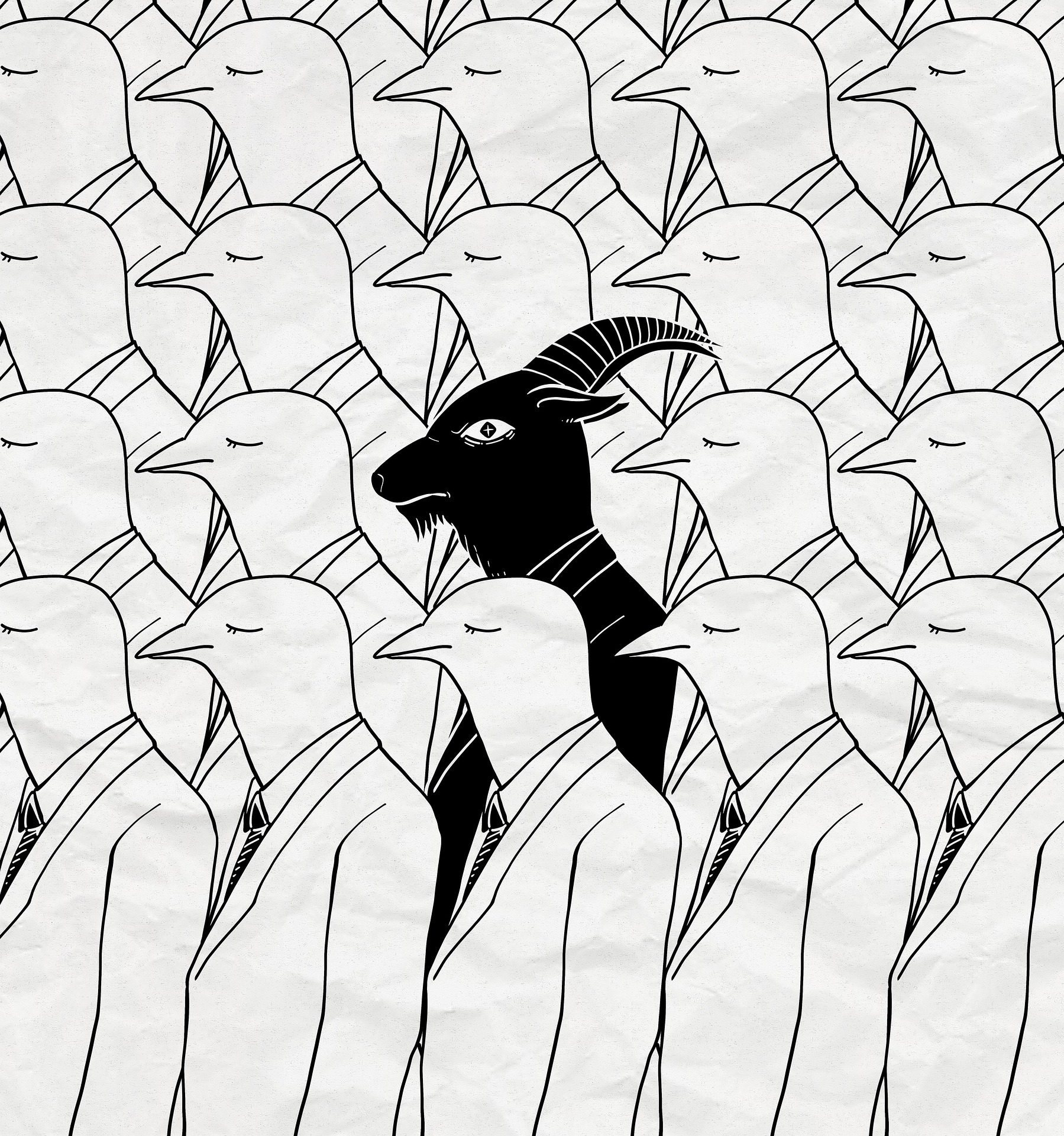Hannah Arendt, who reported on the trial of Adolf Eichmann, noted him as an unremarkable person, a man who was not very witty or bright. Yet, he, the ‘Desk Murderer’, was on trial for being a part of the Nazi killing machine, the ‘Final Solution’. She finds him unable to think for himself, a “joiner” his entire life, with no “insane hatred for Jews, of fanatical anti-Semitism or indoctrination of any kind”, who spoke in tired “cliches”.
Arendt postulates the concept of the ‘Banality of Evil’ in her 1963 book Eichmann in Jerusalem: A Report on the Banality of Evil. The concept is not really taught in any schooling curriculum. It’s not mentioned anywhere, not in history books, English books and not even in the supposed moral science classes.
Arendt emphasises on the normalcy of evil, propagated by people who have lost the ability to think critically, who have reduced the meaning of their lives to an economic end and in the process of “doing their jobs” have become mere cogs in a wheel and are satisfied with it. As Adolf Eichmann testified, he had wanted a promotion – thus, he sent millions of Jews to the gas chamber.
Eichmann had not completed high school or vocational training, and this leads me to wonder what happens if the educated masses of today become such cogs in a wheel? The tragedy of the 21st century is that more people are indeed getting educated, yet are still stuck in economic dimensions.
We ask our children, “What do you want to become when you grow up?” in terms of a career, not who they want to be when grow up. We don’t take lesser ambitions as legitimate – we Indians particularly follow a herd mentality, with scores of children shipped off to Kota, Palai etc for medical/engineering entrances, IITs, NITs or AIIMS being the dream. From there, they get recruited to a company that pays them lakhs. Eventually, they burn out, and if you really ask someone who they are, as in the very essence of who they are – there is a high chance they may not be able to answer.
Since they don’t exactly know who they are, they are far away from their values. They are alienated (in the words of Karl Marx), from the product of their labour, their society, themselves. They have not been educated in the real sense of the word. All they were taught was to run the rat race. Once it ended, they didn’t know what to do with their lives.
Such a generation, with darkness in their hearts, no purpose for their lives, remain stoic in their responses at brutal deaths of vulnerable people. Meanwhile, those with power give straight answers such as, “The accused committed suicide using drawstrings hanging on a tap”, without blinking even once. Those with influence spread hate and conduct media trials for TRPs. Others, from the safe anonymity of their fake Twitter/other social media handles, send rape threats to babies.
Yet others create fake IDs to spread vitriol and hatred. They find an us-versus-them in every aspect of life. They fight small battles with people who are less privileged than themselves, a Re 1 from the domestic help, a Rs 10 from the vegetable vendor, and lose the greater war in the context of their life and situations.
Yet they refrain from questioning the realities of their lives, and the poor governance that got them there. Why are their taxes not being used to give everyone a better life, why isn’t there affordable housing and unpolluted air, water or earth? Why isn’t there unadulterated food, why are the rivers frothing? Why did people have to walk back kilometres due to an ill-conceived lockdown? Why did scores of people die as they did not get proper medical care and oxygen when they needed it the most?
Education was supposed to light a lamp in our hearts, and we were supposed to carry it till our last breath. Where did it all go so wrong? We should begin by asking children, “Who they want to be when they grow up”. So the child understands there are more things in life other than a fat paycheck, and that they are not defined by a mere job, an address or a tagline. That it is a good ambition to be an authentic person when they grow up. That it is good to be able to have a spine to point out a wrong when it is being done, and to say no if a situation warrants it. That it is good to sometimes sacrifice what one wants for the greater good. That it is not a whole life, when you have had to sacrifice your ethics for a promotion or for a job, or to please your masters.
How about we start now, and not lose one more generation?
The author is a resigned banker, who resigned to try her hand at the civil services examination, and a concerned citizen.
Featured image credit: Pixabay

